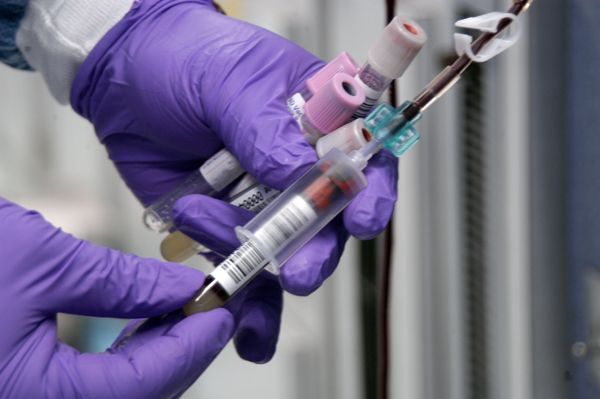Researchers at sites in Singapore and the UK have developed a new blood test – called the TruSight Cardio Sequencing Kit – capable of diagnosing a range of genetic heart conditions. The rapid test is capable of detecting 174 genes associated to 17 distinct heart conditions.
The blood test identifies all known genetic mutations related to such heart conditions as structural heart disease, aortic valve disease, Noonan syndrome, familiar atrial fibrillation and various cardiomyopathies. The research was published in the Journal of Cardiovascular Translational Research.
While genetic testing has become a common tool used to identify genetic mutations which may put an individual at a higher risk of developing disease, currently-available genetic tests for inherited heart conditions are limited. According to Dr. James Ware, of the National Heart and Lung Institute at the MRC Clinical Sciences Centre at Imperial College London, UK, and the lead researcher on the study, current genetic tests only identify a small number of genes related to heart conditions, meaning there is the potential that genetic mutations in other parts of the genome could be overlooked.
The new test uses next generation sequencing to identify 174 genes in blood samples taken from patients. In order to determine how effective the test was at identifying these mutations, the researchers analyzed samples taken from 348 participants from the National Heart Center Singapore.
The blood test was found to be up to 100 percent accurate in detecting all genetic mutations linked to inherited heart conditions. According to the researchers, this new test is faster, more reliable and more cost-effective compared to current tests used to diagnose inherited heart problems.
“As research advances and technology develops, we are identifying more and more genetic mutations that cause these conditions,” said Professor Peter Weissberg, medical director of the UK’s British Heart Foundation which helped fund the study. “In this rapidly evolving field of research, the aim is to achieve ever greater diagnostic accuracy at ever-reducing cost.
“This research represents an important step along this path,” he said. “It means that a single test may be able to identify the causative gene mutation in someone with an inherited heart condition thereby allowing their relatives to be easily tested for the same gene.”
The Royal Brompton & Harefield National Health Service (NHS) Foundation Trust has already adopted the new test, and is currently using the diagnostic to screen 40 patients per month for genetic heart diseases. Approximately 100,000 people die from inherited heart condition-related cardiac arrest each year in the US.
“Without a genetic test, we often have to keep the whole family under regular surveillance for many years, because some of these conditions may not develop until later in life. This is hugely costly for both the families and the health system,” said Ware. “By contrast, when a genetic test reveals the precise genetic abnormality causing the condition in one member of the family, it becomes simple to test other family members.
“Those who do not carry the faulty gene copy can be reassured and spared countless hospital visits,” he said. “This new comprehensive test is increasing the number of families who benefit from genetic testing.”












Join or login to leave a comment
JOIN LOGIN